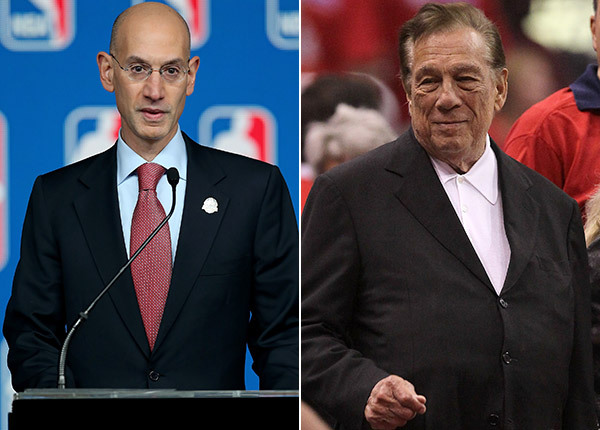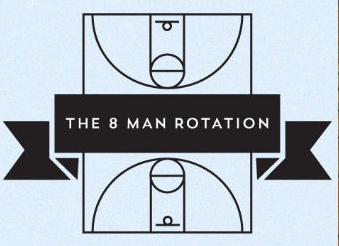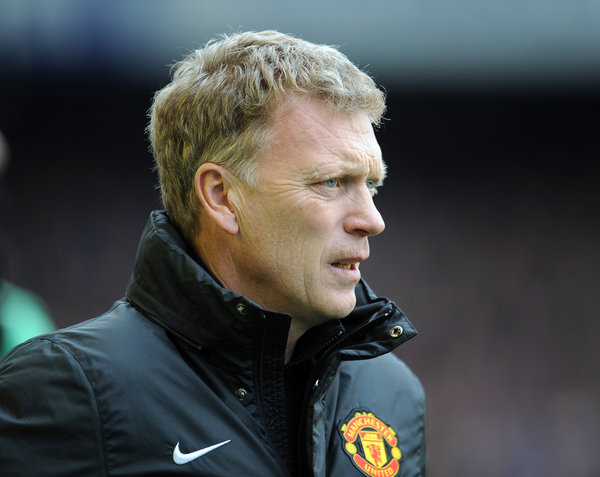I probably don't need to re-hash the Donald Sterling v. the NBA (and the World) narrative once again for you, by now you have heard the important details of the story. But just to re-set, and set up this piece, you need to know two things.
1. Sterling, the owner of the Los Angeles Clippers was just suspended from the NBA for life for making racist statements, fined $2.5M, and is going to be forced by the other 29 NBA team owners to sell the Clippers. 
2. This disciplinary judgement was handed down by NBA commissioner Adam Silver, whose name may not be terribly familiar to you, and is not that familiar to even many NBA fans. Silver just became the Commissioner about three months ago when he succeeded former commissioner and NBA legend David Stern, who had a 30-year reign leading the NBA. Stern in many ways became synonymous with the modern NBA, and while not perfect, will probably be remembered by history as one of the two or three greatest sports executives of his time.
Adam Silver, the new person in charge, had to not only deal with the Donald Sterling situation, he also had the added challenge of this very public and high-profile problem being the first true test of his leadership. And in this test, Silver elected to mete out the harshest and most significant punishment that was possible according to the NBA constitution. Silver could have suspended Sterling for a fixed time period, like one year, could have fined him less than the max of $2.5M, and did not have to elect to push for Sterling's removal as an owner. But instead Silver went heavy, and in his first leadership test, (at least one that involved a disciplinary decision), he made a pretty bold statement.
That statement was essentially, "There's a new sheriff in town."
Here are three reasons I can think of why it makes sense for a new leader to come down super heavy in their first big leadership spot:
1. Old-school territory marking - A new leader, especially one succeeding a highly successful and influential predecessor, has to make sure the rest of the team knows who is running the ship now. One of the best ways to send that message is with really bold, decisive actions that help to instill confidence in the team. I have read lots of accounts of the NBA/Silver decision, and not once have I read "What would David Stern have done?"
2. If the decision is a "Should he/she stay or go?" one, you should almost always pick 'Go' - One of the biggest challenges for the new leader is evaluating the team around them. And it is usually obvious who needs to go, and most of the time the leader will know it in their gut but don’t do anything because they don't want to shake things up too soon. It’s hard to face that there is some house cleaning that needs to be done before the new leader and team can move forward. Or they might think that with a new approach or style that the person can be coached. This almost never works out. A new leader is better off cutting bait nine times out of ten. These kinds of tough decisions can also open up opportunities for other members of the team who may have been languishing under the former regime, feeling stuck or blocked by folks that needed to be (gently) moved along.
3. It's easier to lighten up later, than it is to get tougher - Did you ever have a teacher or coach or manager or even one of your parents that was kind of easy-going and took a laissez-faire kind of approach? The type of leader that generally liked to keep their hands clean, avoided most unpleasant confrontations, and tried to guide you more so than lead you? But later when there arose some kind of situation or screw-up where the leader really had to get tough, crack the whip, bang the hammer, (you get the idea), no one really took them seriously since they were always more of a friend rather than an authority figure? The point being it is almost impossible to pivot from 'nice-guy' to 'tough guy' once your reputation as a nice guy is established. It is much, much easier to ease off a little bit over time, once the team sees you as someone that is not afraid to make tough, sometimes unpopular decisions. Good luck trying to go the other way.
What do you think, about Silver's decision here and about how new leaders stake out their position in general?
Chalk up another 8 Man Rotation post for me, Professor Stollak.


 Steve
Steve


